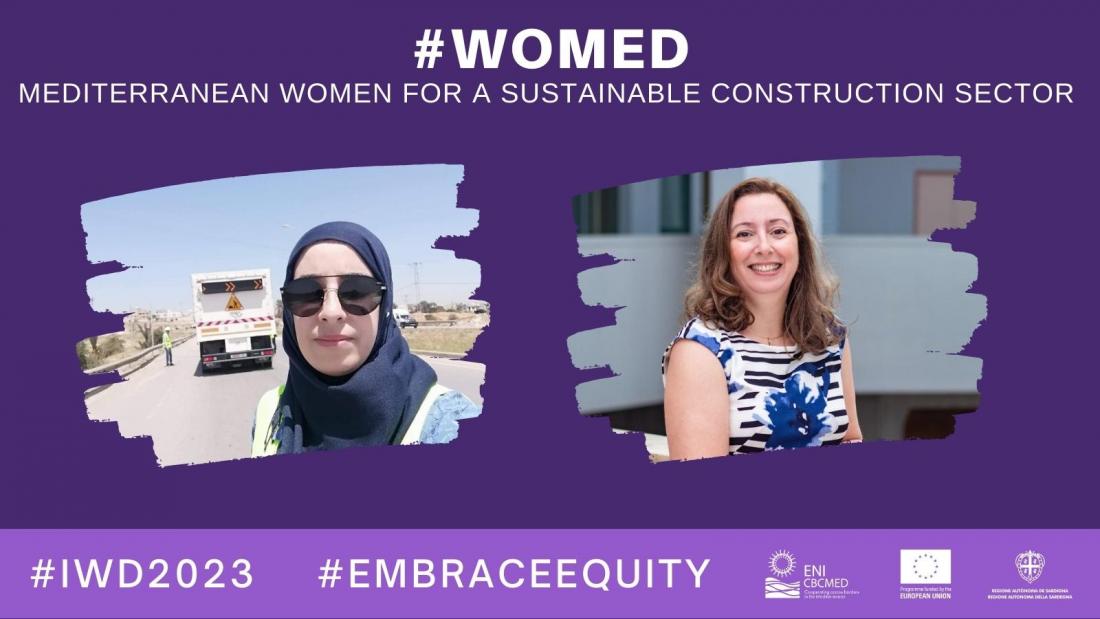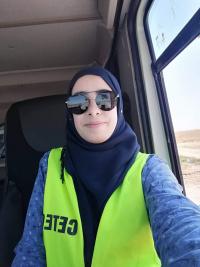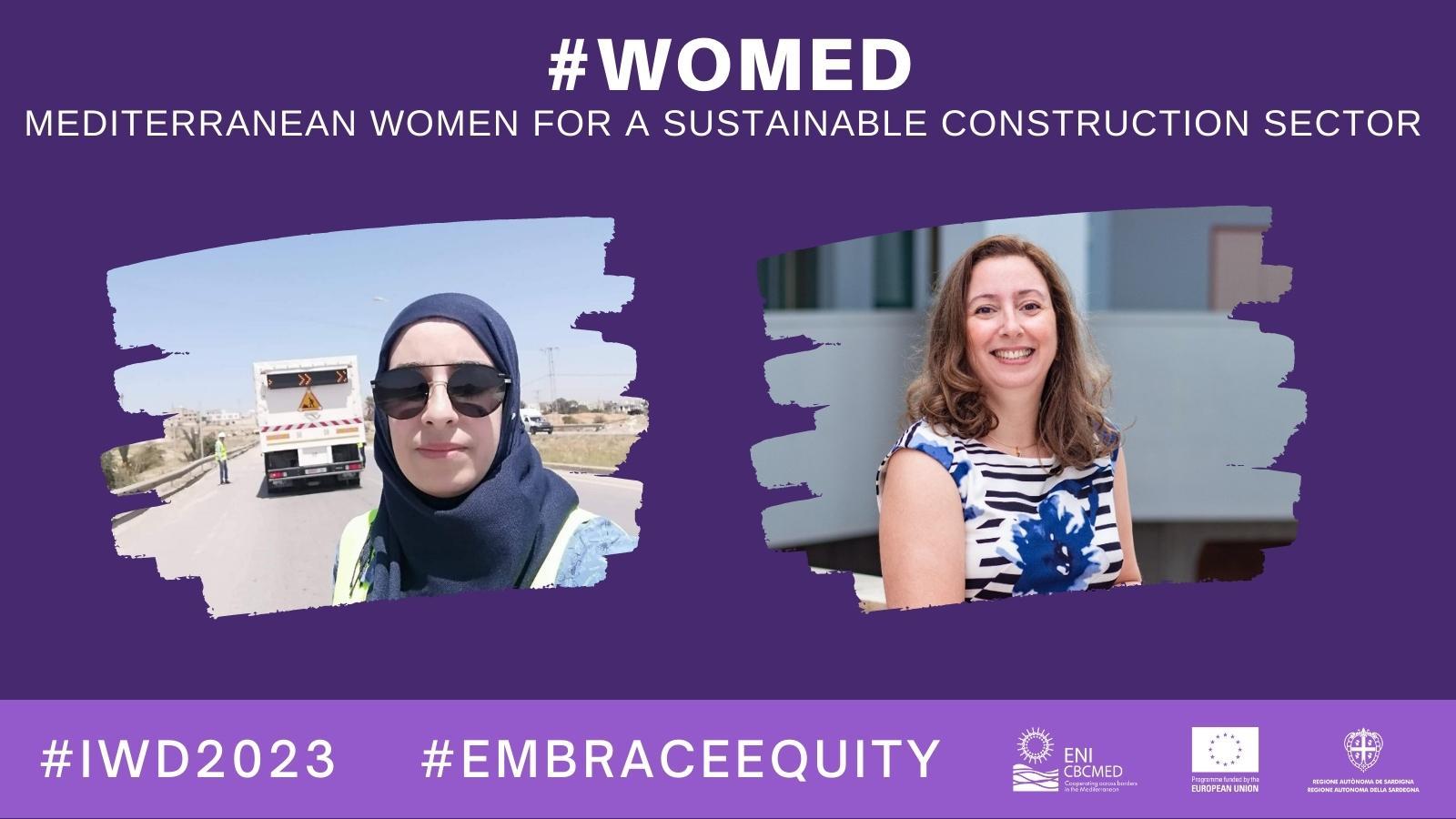The ladies of the construction sector: Roua and Oumaya, two Mediterranean women committed to an ecological transition of the sector

On International Women´s Day, ENI CBC MED program took the time to chat with two women involved in the RE-MED project. The latter aims to transform construction and demolition waste into new resources for road construction and maintenance. Although the road and construction sectors are largely dominated by men, two women have made their way there.
Roua Zarrouk is a civil engineer in Tunisia. She is head of pavement services at the Center for Testing and Construction Techniques (CETEC) and head of the “pavement mechanics” section. Oumaya Marzouk has a researcher profile and works in France. After completing a university degree in chemistry in Tunisia, she pursued her studies in France. She is currently project director in circular economy at the Center for Studies and Expertise on Risks, Environment, Mobility and Planning (CEREMA) and has been recognized as a national expert by the French government in the field of recycling in road infrastructures.
Both have brilliant backgrounds. They have the support of their family and have been lucky enough to be able to access interesting positions in a largely male dominated sector, facing many challenges but with pride and satisfaction.
Challenges: a driving force or a brake to get where they are?
The sad reality is that most women who grow up or who live in the southern shore of the Mediterranean have assumed that they have to work twice to three times more than men to be recognized and accepted in certain professional sectors.
Mrs. Markzouk and Ms. Zarrouk share some anecdotes they have experienced.
During a job interview when she hears, after having perfectly answered all the technical and psychotechnical questions: but you are a woman, you are not going to work in the south of Tunisia! Or when a future colleague refuses to be managed by a woman.
When a colleague says to you: go get a broom, what are you doing here or when a university professor is surprised that her student wants to pursue her studies and start a PhD degree, as if she won´t be able to make it, these women can either give up or be boosted by this kind of challenge and demonstrate that they are perfectly capable of it.
Always go further, persevere while you shut your ears.

There is no doubt that they can. Women can acquire knowledge and skills, but it does not seem enough to be credible and to access to senior management positions. And unfortunately, it does not matter if you are in France or in Tunisia because in this specific sector, mindsets do not evolve much.
Time and relationships to gain more credibility
“With time, we learn to respect you for your skills and your way of doing things. We forget that you are a woman, and we see you as a professional,” said Ms. Zarrouk. As for Mrs. Marzouk, it is the social aspect of relationships between colleagues that allowed her to be better accepted.
Being competent is not enough to gain credibility.
Are female role models really useful?
In their case, it could help but it is not essential. Ms. Zarrouk has her father as a model. For Mrs. Marzouk, she had none, even if she recognizes that the support of her supervisor in her various professional stages has been of great support to her.
What about the laws on gender equality?
In order to accelerate the participation of women in economic and professional life, the “Rixain” law of 24th December 2021 in France includes several measures aimed at greater equality between women and men in companies. It is in this sense, its article 14 establishes an obligation of balanced representation between women and men in the management positions of large companies.
According to Mrs. Marzouk, if these kinds of laws are perceived as an incentive, why not. That said, these laws prove that there is a failure in the evolution of mindset. If the society naturally progressed towards more gender equality, we wouldn't need it. Let's say that these laws contribute to accelerating the process towards more parity.
As for Ms. Zarrouk, wanting to guarantee parity through laws is not necessarily the right method. She would be more in favour of measures such as anonymous CVs rather than a quota system.
What about femininity in the building and public works sector?
Both agree on the fact that it is important not to try to look like a man to assume certain positions. It is not because they work in a sector largely represented by men that they have to give up their femininity.
“We have to act like women, and they have to accept us as we are,” adds Ms. Zarrouk.
“The older generation thought that you had to dress like a man to be more respected: pants and dark colors. I often dress in colorful skirts and wear heels,” says Mrs. Marzouk.
The weight of society
The weight of society should not be underestimated, especially in the southern shore of the Mediterranean. All women are not lucky enough to count on family support (both moral and financial), and unfortunately, willpower and lots of hard work are not always enough to succeed.
In the case of Tunisia and probably in other countries of the Middle East and North Africa (MENA) region, when a family does not have the means to meet its needs, girls are the first ones to be taken out of school so that they go and work. In some cases, the priority of education is given to boys.
“When you grow up in the capital and go to more remote regions, you become more aware of the disparities, the differences. As if we had changed countries. It is a cultural shock. There is an obvious huge gap between the north and the south of Tunisia and even between those who studied abroad and those who remained in the country. These differences are reflected in the way you interact between men and women and later on, in the way you raise your children” says Mrs. Marzouk.
To conclude: promote diversity and participate in community life
Changing mentalities is probably the most difficult element when addressing gender equality and education and family support are important but not enough.
Promoting the diversity from an early age in the sense of mixing girls and boys, in different types of activities (school, sport, theatre, etc.) is a key element. Participating in community life also plays an important role. In the case of Ms. Zarrouk, it was decisive. Thanks to volunteering and her involvement in an association, she found a place where she can meet different kind of people and exchange ideas with them, she discovered the art of debating, she found a space to speak freely, to gain more self-confidence. The association has become a second family where she learnt a lot.
What is more important than getting to know and respect each other to be accepted regardless of the environment or sector in which one wants to develop and grow professionally.










